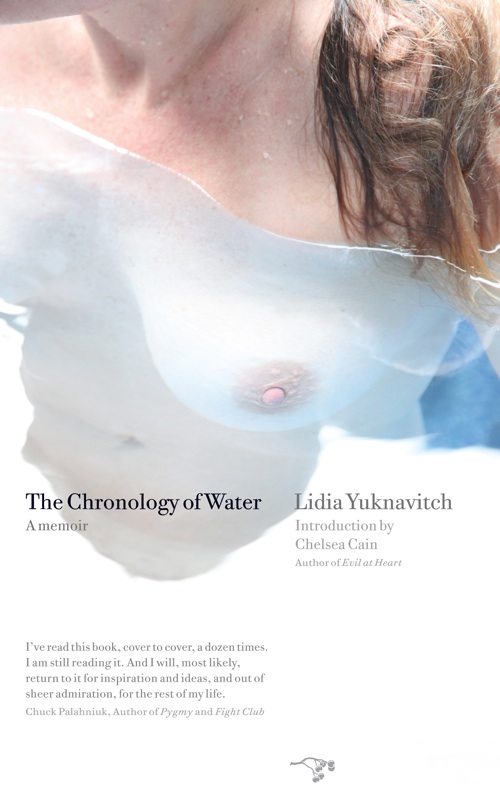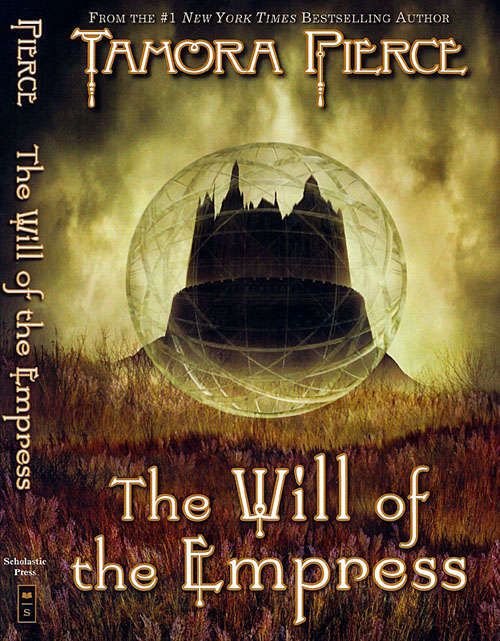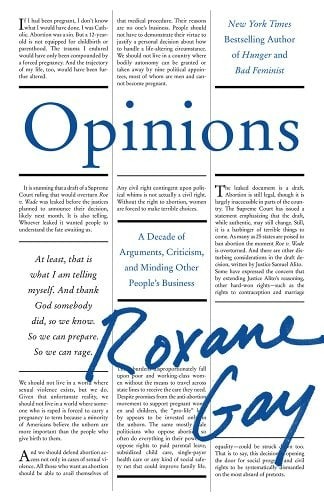I heard many, many good things about Lidia Yuknavitch’s memoir before I picked it up. On the one hand, many readers who are also great writers (Ivan E Coyote and Alex Leslie among them) had recommended it, so I thought it should be a sure bet. On the other hand, it’s always a bit dangerous when you have really high expectations coming into a book. I think I prefer no expectations at all, to be honest. I lucked out, however, with this book, which is as beautiful and smart as the title, The Chronology of Water, suggests it is. Also, in case you still have any doubts by the time you actually have the book in your hand, the cover features a photo of a boob underwater. Enough said.
The synopsis on the inside cover declares, “This is not your mother’s memoir.” I’m not really sure what exactly your mother’s memoir would be like, but it’s true that Yuknavitch’s memoir is not for the faint of heart, both in terms of content and style. The memoir opens, for example, with this: “The day my daughter was stillborn, after I held the future pink and rose-lipped in my shivering arms, lifeless tender, covering her face in tears and kisses…” Yuknavitch does not hold back, sharing intimate details about, most of all, her body: drug use, child birth, destructive relationships, abuse, swimming, and a lot of sex (with both women and men). What I really enjoyed was how Yuknavitch handled such so-called scandalous material: as if it were ordinary. In fact, she tells us:
“This is not another story about addiction… My life is more ordinary. More like… more like everyone’s. Addiction, she is in me, sure enough. But I want to describe something else to you. Smaller. A smaller word, a smaller thing. So small it could travel a bloodstream.”
She’s quite adamant that the book not fit into a marketable, monolithic narrative of either drug addiction or sexual abuse/incest survivor. She wants to tell the story she wants to tell, not the right kind of incest story, or the kind of inspirational story about ‘overcoming’ drug addiction that Oprah snags for her book club. It’s a fiercely feminist book, and it wants to talk about “the tyranny of culture telling women who they should be.” In a way, all the other feminist issues she deals with—abuse, sex, childbirth, family—lead back to writing, which Yuknavitch calls her lover and her most intimate secret. Writing is the reason she’s here to tell the stories in this book.
In the same way that Yuknavitch refuses conventions as regards the memoir’s content, she slashes any stylistic and narrative expectations you might have and spins them around, backwards, forwards, and backwards again. While she sometimes writes a scene in a straightforward, beginning-to-end-style, she will then begin the next chapter by telling you that wasn’t exactly how it happened; for example: “Goddamn it. I’m already lying. I’m making it sound all literary. It was messier than that. A lot.”
Often even when the actual language is uncomplicated, the narrative is in “random fragments,” which Yuknavitch tells us is “how [she] understood her entire life. In the language—image and fragment and non-linear lyric passages—that seemed most precise.” The actual writing is sometimes downright nonsensical, pages uninterrupted by the indent of paragraphs, littered with run-on sentences, bereft of punctuation. No matter where is she stylistically, Yuknavitch is unquestionably a talented wordsmith. For example:
My first book came out of me in a great gushing return of the repressed. Like a blood clot had loosened. My hands frenzied. Words from my whole body, my entire life, or the lives of women and girls whose stories got stuck in their throats came gushing out. Nothing could have stopped the stories coming out of me. Even though my hands and arms and face hurt—bruised and cut from falling from a train—or a marriage—or a self in the night—I wrote story after story. There was no inside out. There were words and there was my body, and I could see through my own skin. I wrote my guts out. Until it was a book. Until my very skin made screamsong.
Since this is the Lesbrary, you probably want to know more about how the memoir deals with Yuknavitch’s queer sexuality (or maybe that’s just my personal interest). Let me tell you, first off, Yuknavitch can write a really hot sex scene. This comes from someone who is super picky about erotica and sex writing. Just trust me. It’s super sexy, and it’s never cheesy or over-the-top or too tame. It’s perfect. Here’s how she describes breasts: “Boobs were the magical thing women had. White and full and inexplicably mouthwatering.” Also, here’s a bit about a threesome with two women:
We ate each other we ate pickled herring we ate gruyere cheese. We ate the animal out of each other’s bodies we ate steak we ate chocolate two women my chocolate. We drank each other we drank all the beer we drank all the wine we peed outside. We got high on skin and cum and sweat we got high on pot. We came in waves we ran out and into the waves.
Okay, the third and last thing I want to say about queer sexuality in the book is that I loved a hilarious chapter about a young teen Lidia going crazy with lust at all the older girls in the change room at the swimming pool. About how she just wants to rub herself all over them. Awesome. Oh, and if you’re looking for some writing about BDSM, that’s in here too, and it’s also very well done.
The only other memoir I’ve read that The Chronology of Water comes close to is Jeannette Winterson’s Why Be Happy When You Could Be Normal? In case you haven’t read my review of that book, this means Yuknavitch’s memoir is one of the best books I’ve ever read.




Grab the Lapels says
I sat and read this entire book in one sitting. Then, my husband and I drove to Chicago where Yuknavitch and the writers Davis Schneiderman and Cris Mazza were all doing a performance/reading together called “Water, Water, Every Word.” They stood in a kiddie pool and dumped water on each other while trying to read. Yuknavitch brought everyone in the audience swim goggles. She wore fishnet stockings, a bathing suit, and a swim cap. She read from the part about being horny like a little monkey for the girls in the locker room. When I read that part myself, it seemed almost serious. When she read it, she sounded almost shy but like she was trying to express how funny it was. Afterward, we all went to a nearby bar (there wasn’t a huge audience, and the event was in a studio space). Yuknavitch kept touching my extremely long blond hair, and I felt mega-special because I remember reading in the memoir that she has a long hair fetish